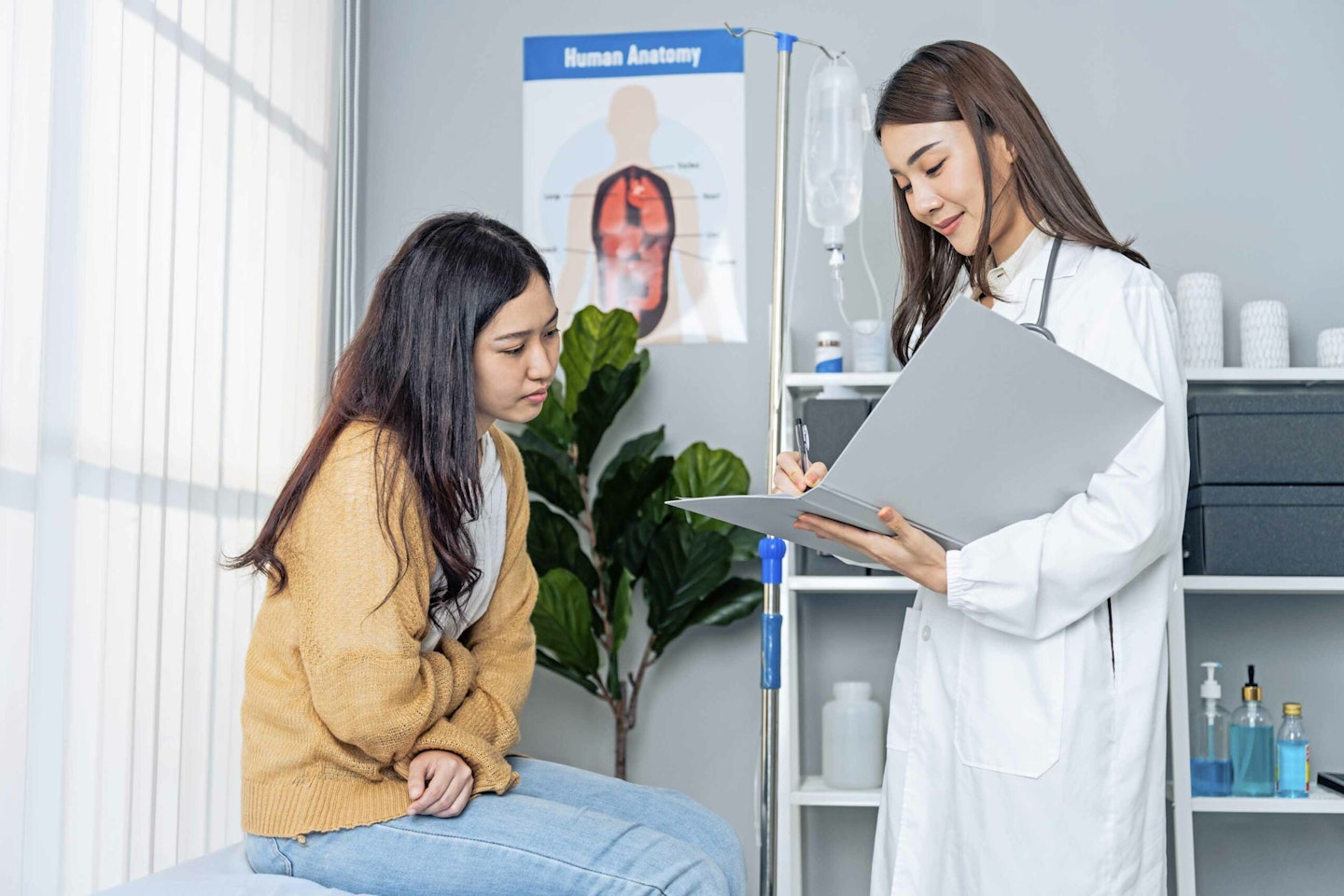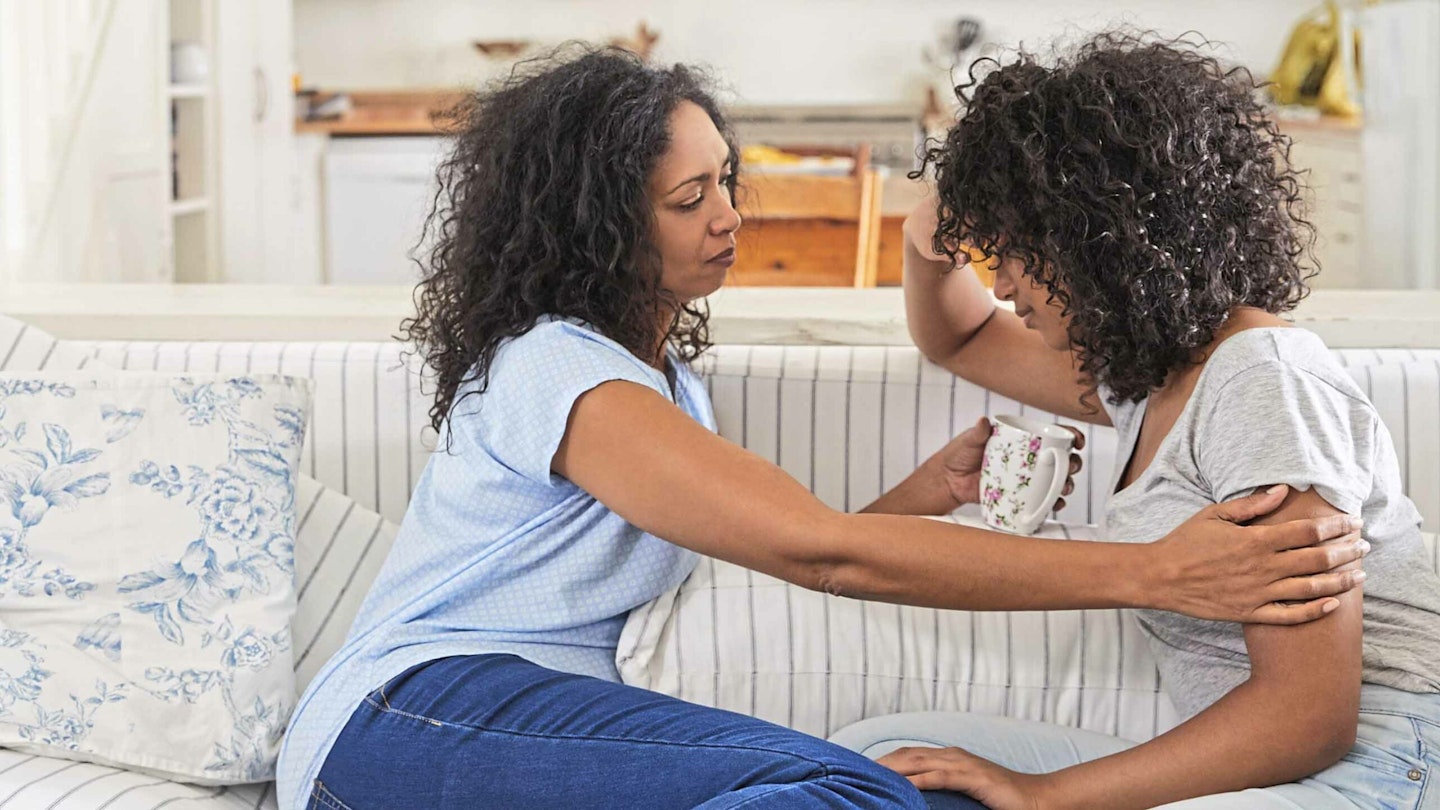Endometriosis (when tissue similar to that of the womb lining starts to grow in other places, causing pain and heavy periods) affects 1.5 million UK women; about one in three women who have had children suffer a prolapse (when one or more of the organs in the pelvis slip down and bulge into the vagina); and heavy bleeding is one of the most common complaints, but only five in every 100 women talk to a GP about it. Here’s how to get the help you deserve…
See your doctor about pain
Dr Christian Jessen is adamant that if you are suffering with any gynaecological problem, you should see a doctor. “Women are bombarded with the message that GPs are overworked, plus there’s a message in society that having difficult periods is somehow normal,” he says. “But if you have terrible, painful, heavy periods that are affecting your life, you need to see your doctor – we can help.”

Know what to expect
If you have heavy, painful periods, what can you expect your GP to do? “I would do some blood tests to see what’s going on with your hormones, and rule out other possible causes, like clotting,” says Dr Christian. “On the basis of those I may give a course of medication – maybe a contraceptive pill, or perhaps tranexamic acid. If it’s complicated, I may refer you to a gynaecologist.” Don’t feel your problems aren’t important. “Gynaecological issues can impact your relationships, your work and your fertility,” says Dr Christian. “But there are treatments – and they don’t always involve surgery. With everything from heavy periods to endometriosis to prolapse, there are drugs that can manipulate your cycle, physio and medical devices that can help.”
Work with your doctor
It takes, on average, eight years to diagnose endometriosis, so what’s going wrong? “It’s difficult to diagnose and to treat,” says Dr Christian, who adds that both diagnosing and treating it involve trial and error – which relies on you and your doctor working together. “It can take quite a long time to find the right treatments, and while the patient is trying various things, they need to keep going back to their doctor and saying, “This isn’t working,” which people don’t like doing. As women have a period every month, it takes three months to see if a treatment is working consistently for, say, heavy bleeding. Six months can pass really easily without anyone doing anything wrong.”

Make yourself heard!
You may be frustrated with the lack of progress, but stick with it. “We medics sometimes say, ‘Watch and wait’, which – you may feel – makes it sound like we’re fobbing you off. But, sometimes, it’s the right thing to do – we need to see what happens before prescribing the right course of action,” explains Dr Christian. But if you feel like you’re not being listened to or taken seriously by your doctor, that’s a whole other matter. “Ask to speak to someone else. Even with treatment, the therapeutic benefit won’t be as good if you have a poor relationship with your doctor, because you will be reluctant to go back, and you’ll feel negatively about the whole thing,” says Dr Christian. “Look for someone else if you aren’t getting anywhere, because, male or female, old or young, any decent doctor should understand that your pain needs to be treated.”
Educate the next generation
“It’s important that women teach the next generation not to put up with heavy, painful periods,” says Dr Christian. “If you have a daughter or a niece who has difficult periods, talk to her and take her to her GP. Girls need to learn early on that women shouldn’t just put up with pain.” Periods can mean girls miss out on experiences growing up – a recent survey by Women In Sport found that 78 per cent of girls who said they used to be sporty avoided taking part in sport when on their period. “We see a lot of teenage girls drop out of sport for fear of bleeding through their clothes – and that means they miss out on something incredibly beneficial for their health,” says Dr Christian. “Please don’t put up with health problems that make your life challenging.”
